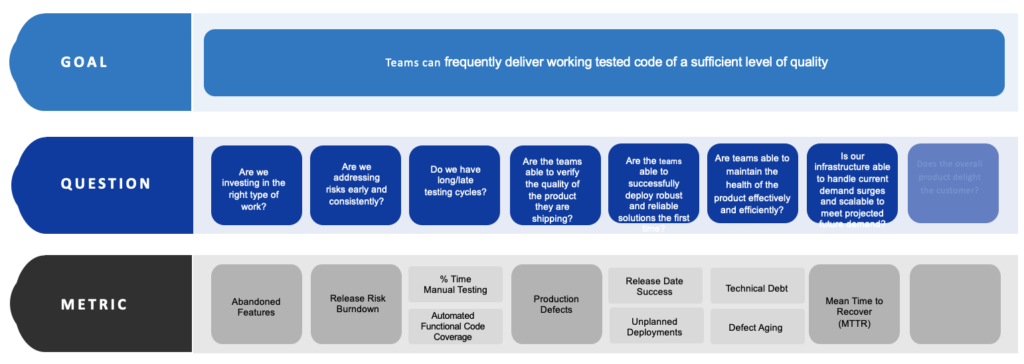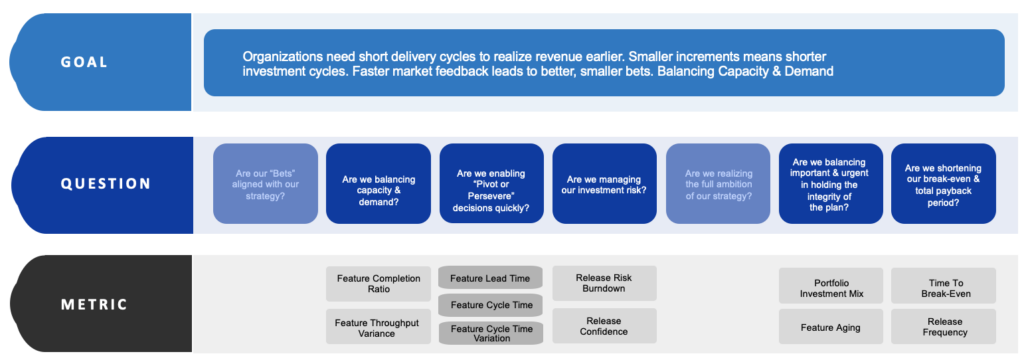The Product Line Team exists to understand the business needs defined by the Product Category Team, breaking Epics into Features and Features into User Stories. An objective of this team is to maximize the flow of value across delivery teams. They accelerate risk reduction and the validation of assumptions. A significant role this team plays is the early identification of cross-cutting concerns, dependencies, and other issues that can’t be easily resolved within delivery teams.
Team Definition, Roles & Responsibilities
Governance Capabilities, Governance Model & Meetings
Measurement & Tooling
A Product Line Team is a special construct in larger, more complex organizations instantiated to break down larger features that one or more Delivery Teams will develop.
The Product Line Team is responsible for
A person may hold more than one role on the team – as long as the team can keep its commitments. The Product Line Team as a whole is responsible for collaborating to achieve these responsibilities.
Roles & Responsibilities
Click on the icons/links below to read more details on Product Line Team Roles.

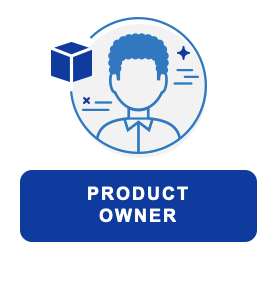
Represents the interests of the stakeholders, sponsors, and potential users; ensures product decisions are in alignment with the strategy; ensures Features and User Stories are properly vetted, prepared, executed, and delivered; ensures that the ready backlog is maintained and that the Delivery Teams are never starved of work. Read More
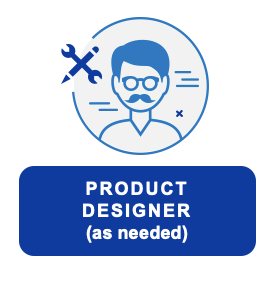
Creates wireframes/storyboards that provide input into requirements and ensures adherence to usability strategy. Read More
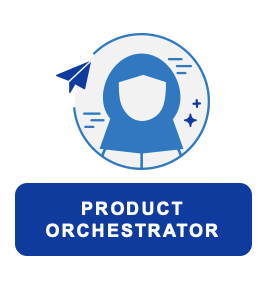
Ensures the Product Line Team has clarity of capacity and demand; provides oversight to maximize the flow of value; ensures product decisions align with the budgets and financial guidelines; collaborates with the Product Category Team Portfolio Orchestrator and the Delivery Team ScrumMaster. Read More
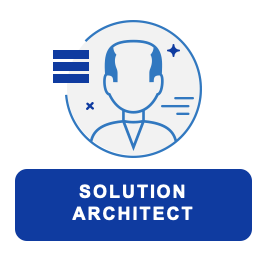
Designs the way products solve business problems by applying proven enterprise integration patterns and domain solutions; leads and coordinates the way features are implemented and applies proven design approaches to achieve resilience and extensibility; interfaces with Delivery Teams to communicate architecture strategy and understand potential constraints; identifies opportunities for refactoring and improvement. Read More
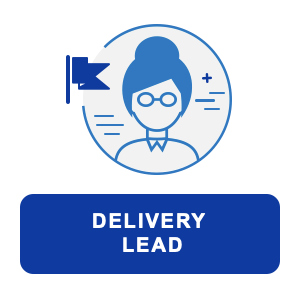
Prioritizes and coordinates the technology, quality, and infrastructure delivery of the solution; conveys risks and impediments for execution; improves team technical capabilities and skills. Read More
Below are the four meetings/working sessions that the Product Line Team performs. Detailed agendas available at Product Line Team Meetings.
Twice weekly, 4 hours
The Team “Walks the Kanban,” discussing Features underway and ensuring a shared understanding of current progress, dependencies, and outstanding risks.
Learn more about Product Refinement & Progression Meetings
Weekly, 2 Hours
Review features ready to move on Kanban board to ensure policies are met; identify actions needed to meet the policies; prepare to discuss.
Learn more about Product Planning Meetings
Every 2-3 months
Establish a shared understanding of what prioritized Features are anticipated to be included in the release. The Features that comprise the release will be refined over time
Learn more about Release Planning Event Meetings
Monthly 1-2 Hours
The entire Product Line Team participates to review how the delivery system is working and plan improvements. The team reviews performance data and analysis, evaluates different options to address issues, decides on a course of action, and creates an action plan.
Learn more about Metrics & Restrospective Meetings
Here are the Product Line Team’s high-level goals for each capability.
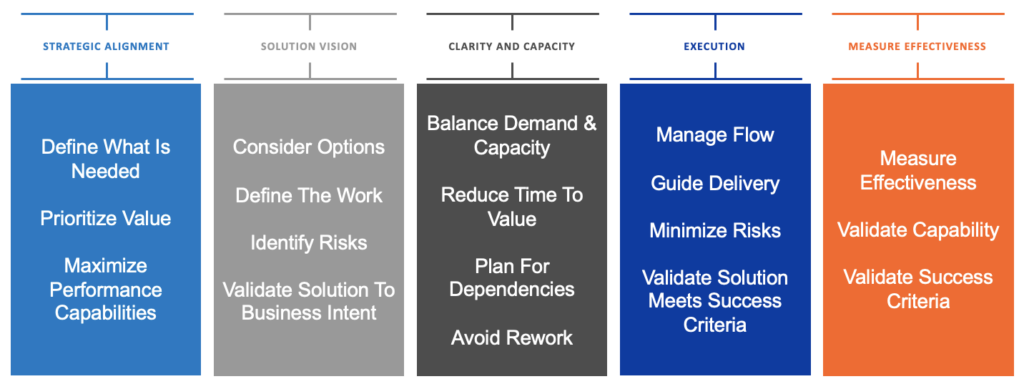
Explore Product Line Team States by Workflow State

A goal to meet a specific purpose is defined for a team or system, focusing on demonstrating a meaningful outcome for the business.
A crafted set of questions define an objective model for assessing the achievement of our goals.
Based on the objective model, a set of metrics is associated with every question to answer it measurably.

